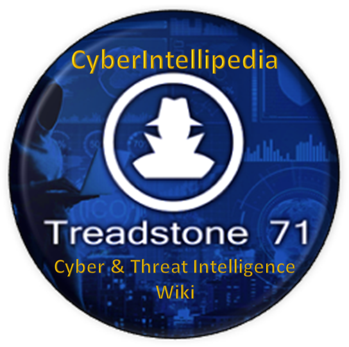
Iranian Cognitive and Information Warfare Section 2 - Cyber Psyops
Measuring Iran's Cyber Capability with STEMPLES Plus
This lecture takes a deeper look at Iranian capabilities and, we compare their abilities to STEMPLES Plus and indicators of change.
STEMPLES Plus is a framework commonly used to analyze and assess adversary capabilities. For this lecture, we will focus on using STEMPLE Plus to measure Iran. We will also look at indicators of change within each of the letters of STEMPLES Plus as we look at their ability to wage offensive cyber operations.
When assessing Iran's information technology capability to wage cyber warfare operations, the following factors come into play:
Impact of Emerging Technologies: Iran recognizes the importance of emerging technologies related to cyber warfare, intelligence, and operations. These technologies, such as artificial intelligence (AI), machine learning (ML), automation, and advanced analytics, can enhance offensive cyber capabilities. Iran may invest in researching, adopting, and adapting emerging technologies to strengthen its cyber operations.
Impact of the Internet and Communications: The proliferation of the internet and the reduction in communications costs have provided opportunities for Iran to engage in cyber warfare operations. The internet enables connectivity, information exchange, and the ability to carry out hacking activities or government-funded operations against adversaries. Iran can leverage the internet for reconnaissance, malware distribution, command and control, and other offensive activities.
Research and Development (R&D) Activity: Iran acknowledges the significance of research and development in the cyber warfare, intelligence, and operations fields. R&D efforts contribute to enhancing offensive capabilities, developing new tools and techniques, and staying abreast of advancements in the cyber domain. Iran may invest in R&D activities to improve its technical expertise and gain a competitive edge.
Impact of Technology Transfers: Iran's information technology capability can be influenced by technology transfers from other nations or non-state actors. While Iran has faced sanctions and export controls that restrict the acquisition of advanced technologies, it may still attempt to acquire technologies through various means, including collaboration with other countries, hacking, or exploiting vulnerabilities.
Use of Encryption Methods: Encryption methods play a vital role in protecting sensitive communications and hiding malware and hacking activities. Iran, like other cyber actors, may employ encryption techniques to secure its offensive cyber operations, making it more challenging for adversaries to detect and attribute their activities.
Expansion of Technologies in the IoT Fields: The expansion of technologies in the Internet of Things (IoT) field presents both opportunities and challenges for Iran's offensive cyber capabilities. Iran may seek to exploit vulnerabilities in IoT devices, utilizing them for botnet operations or as entry points for cyber attacks.
Potential Theft of Foreign Technologies: Iran may attempt to steal foreign technologies to enhance its offensive cyber capabilities. Cyber espionage campaigns, hacking, insider threats, or other means may be employed to acquire foreign technologies or intellectual property that can augment their technical capabilities.
Use of AI in Offensive Cyber Operations: The use of artificial intelligence (AI) in offensive cyber operations is a growing trend worldwide. While specific details about Iran's adoption of AI in offensive operations are not widely available, it is plausible that Iran may explore and utilize AI techniques for various aspects of cyber operations, including reconnaissance, attack automation, and evasion techniques.
Your Instructor

Treadstone 71 is a woman and veteran-owned small business exclusively focused on cyber and threat intelligence consulting, services, and training. We are a pure-play intelligence shop.
Training dates and locations here
Since 2002, Treadstone 71 delivers intelligence training, strategic, operational, and tactical intelligence consulting, and research. We provide a seamless extension of your organization efficiently and effectively moving your organization to cyber intelligence program maturity. Our training, established in 2008, follows intelligence community standards as applied to the ever-changing threat environment delivering forecasts and estimates as intelligence intends. From baseline research to adversary targeted advisories and dossiers, Treadstone 71 products align with your intelligence requirements. We do not follow the create once and deliver many model. We contextually tie our products to your needs. Intelligence is our only business.
- We use intuition, structured techniques, and years of experience.
- We supply intelligence based on clearly defined requirements.
- We do not assign five people to do a job only one with experience.
- We do not bid base bones only to change order you to overspending.
We are known for our ability to:
- Anticipate key target or threat activities that are likely to prompt a leadership decision.
- Aid in coordinating, validating, and managing collection requirements, plans, and activities.
- Monitor and report changes in threat dispositions, activities, tactics, capabilities, objectives as related to designated cyber operations warning problem sets.
- Produce timely, fused, all-source cyber operations intelligence and indications and warnings intelligence products (e.g., threat assessments, briefings, intelligence studies, country studies).
- Provide intelligence analysis and support to designated exercises, planning activities, and time-sensitive operations.
- Develop or recommend analytic approaches or solutions to problems and situations for which information is incomplete or no precedent exists.
- Recognize and mitigate deception in reporting and analysis.
Assess intelligence, recommend targets to support operational objectives. - Assess target vulnerabilities and capabilities to determine a course of action.
- Assist in the development of priority information requirements.
- Enable synchronization of intelligence support plans across the supply chain.
- ...and Review and understand organizational leadership objectives and planning guidance non-inclusively.
